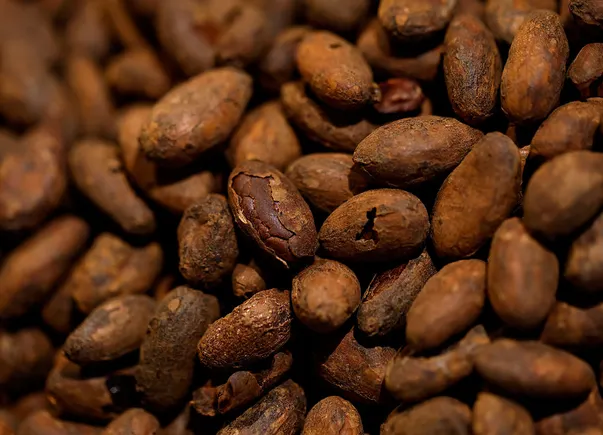As cocoa prices continue to rise, the chocolate industry is exploring alternatives to cocoa that are not only cheaper but also more sustainable. With cacao-growing regions facing extreme climate challenges, chocolate prices have nearly quadrupled in the last two years. This has led major food companies like Mondelēz to experience unprecedented cocoa cost inflation.
In response to this trend, companies like Voyage Foods are scaling their production of cocoa substitutes. Voyage Foods has partnered with food giant Cargill to expand its reach within the consumer packaged goods (CPG) and foodservice industries. Their cocoa-free chocolate alternatives are made with clean-label ingredients like vegetable oil, cane sugar, grape seeds, and sunflower protein flour. These alternatives come in a variety of flavors, styles, and applications, including chips, melting wafers, and chocolate coatings.
Other ingredient suppliers are also offering cocoa alternatives to address the volatility in cocoa prices. Ardent Mills, for example, has introduced a wheat-based solution that can replace up to 25% of cocoa powder in baked goods like cakes, brownies, and cookies. According to Mia Divecha, a senior product line specialist at Cargill, cocoa-free alternatives can be up to 50% cheaper than traditional chocolate and are not subject to the same price volatility.
In addition to being cost-effective, chocolate alternatives also offer a more sustainable path forward for the industry. With supply constraints expected to persist or worsen, consumers are increasingly seeking more sustainable options. Research has shown that three in four consumers are willing to purchase more sustainable chocolate, but are unsure of their options. Cocoa-free alternatives not only have a lower environmental impact but also offer measurable benefits like a lower water footprint, reduced land-use impacts, and a smaller carbon footprint.
Despite the benefits of chocolate alternatives, taste remains a significant barrier to growing the market. Consumers have high expectations when it comes to the taste and quality of chocolate, making it challenging for companies to recreate the rich flavor of traditional cocoa-based chocolate. However, companies like Voyage Foods are working to develop alternatives that are not a perfect facsimile of traditional chocolate but still offer a delicious and satisfying experience for consumers.
While the chocolate industry faces challenges from rising cocoa prices and supply constraints, the development of cocoa-free alternatives offers a promising solution for companies looking to reduce costs and environmental impact. As consumers become more conscious of sustainability and seek out more sustainable options, the demand for chocolate alternatives is likely to grow in the coming years.


